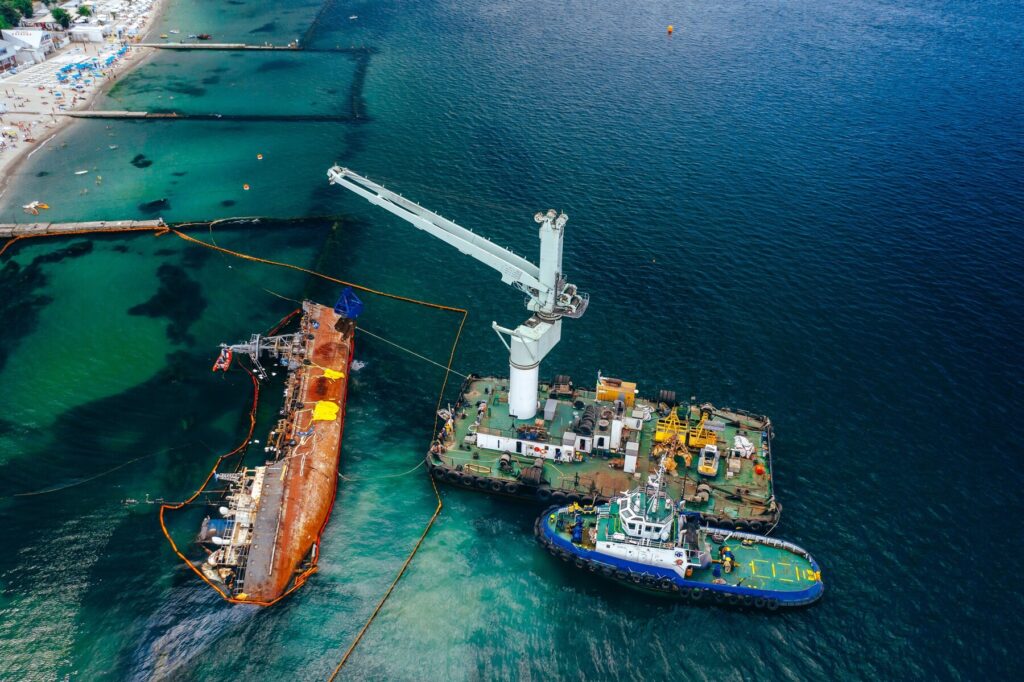Subsea bolts are specialized fasteners designed to withstand harsh underwater conditions, making them essential for offshore construction projects. These bolts are commonly used in oil and gas platforms and offshore wind turbines, where they must endure high water pressure and severe corrosion. Below is a detailed overview of their roles, technical requirements, and key factors to consider when selecting subsea bolts.
The Role of Subsea Bolts in Offshore Projects
Subsea bolts play a critical role in securing underwater structures, from offshore drilling rigs to wind turbines. These bolts keep structures stable and secure, even under strong currents and harsh marine conditions. Subsea bolts are also used to secure monitoring and control devices like sensors or leak detection equipment in subsea installations. Thus, their durability and reliability are vital to the stability and safety of these large-scale projects.
Technical Requirements for Subsea Bolts
To ensure safe and effective performance, subsea bolts must meet several rigorous technical requirements:
- High Corrosion Resistance: Due to the high salt content in seawater, subsea bolts must be highly resistant to corrosion. This is why they are often made from specific materials like high-grade stainless steel, nickel alloys, or titanium.
- High Pressure Tolerance: At greater depths, water pressure increases significantly. Subsea bolts need to withstand these extreme pressures without deformation, ensuring structural integrity even at substantial depths.
- High Tensile and Shear Strength: Subsea bolts need to endure the high tensile and shear forces from underwater currents and constant movement. This strength prevents loosening or displacement, keeping the structure secure.
- Anti-Galling and Lubrication: Some subsea bolts are coated with anti-galling and anti-corrosion lubricants to reduce friction and prevent oxidation over long periods underwater.
Common Materials for Subsea Bolts
Selecting the right material is essential for subsea bolt performance. Some commonly used materials include:
- Stainless Steel: Stainless steel grades like 316 or 904L are popular due to their good resistance to corrosion in seawater, making them suitable for most subsea applications.
- Nickel Alloys: Nickel-based alloys like Inconel offer excellent heat resistance and corrosion protection, particularly in high-pressure, deep-sea environments.
- Titanium Alloys: Titanium is known for its high strength and superior corrosion resistance. While costly, it is often used in critical subsea applications where maximum durability and safety are required.
Coatings and Surface Treatments to Enhance Subsea Bolt Durability
In addition to material selection, coatings and surface treatments are crucial for prolonging the lifespan of subsea bolts:
- PTFE (Teflon) Coating: PTFE creates a smooth, anti-friction surface that resists build-up and oxidation, providing an extra layer of protection against corrosion.
- Dacromet Coating: Dacromet is a specialized coating known for its excellent corrosion resistance and heat tolerance, making it suitable for harsh marine environments.
- Hot-Dip Galvanizing: A zinc coating applied through hot-dip galvanizing provides corrosion protection, especially for bolts used in shallower, less corrosive waters.
Key Considerations When Choosing Subsea Bolts
When selecting subsea bolts, there are several important factors to keep in mind:
- Operational Environment: Factors like depth, temperature, and the chemical composition of seawater impact the corrosion resistance and overall performance of subsea bolts.
- Load Requirements: Choose bolts with sufficient load-bearing and tensile strength for the project’s needs to prevent deformation or displacement under high underwater forces.
- Compliance with Industry Standards: Subsea bolts should comply with international standards like API or ASTM to ensure quality and safety.
- Cost and Longevity: Balancing material and coating options is essential to optimize both the cost and durability of subsea bolts in a harsh marine environment.
Subsea bolts are essential to the safety and durability of underwater and offshore structures. By selecting the right materials, coatings, and ensuring compliance with technical standards, subsea bolts can perform reliably in the demanding underwater environment. Investing in high-quality subsea bolts is a wise choice to protect and maintain offshore structures over the long term.

